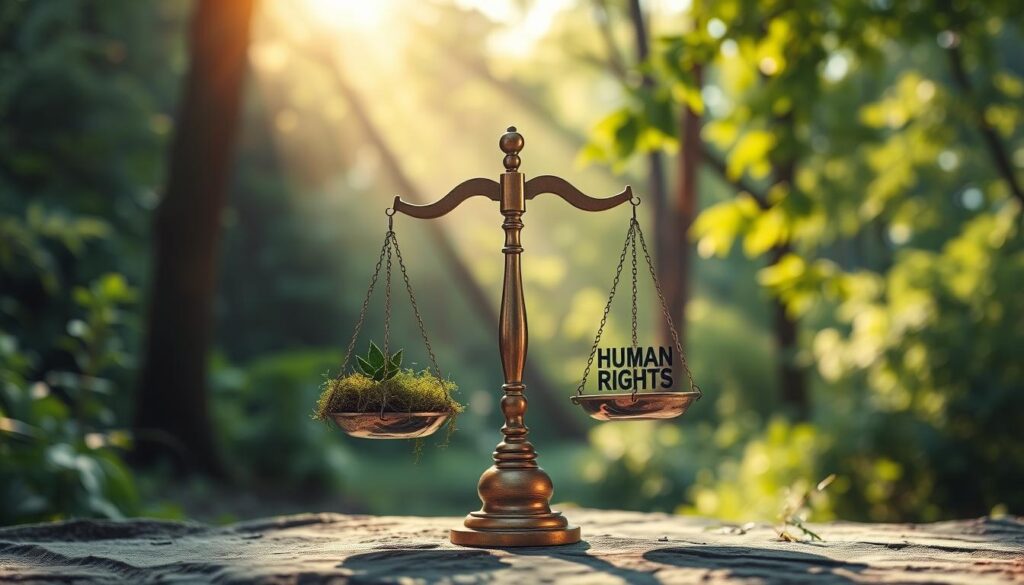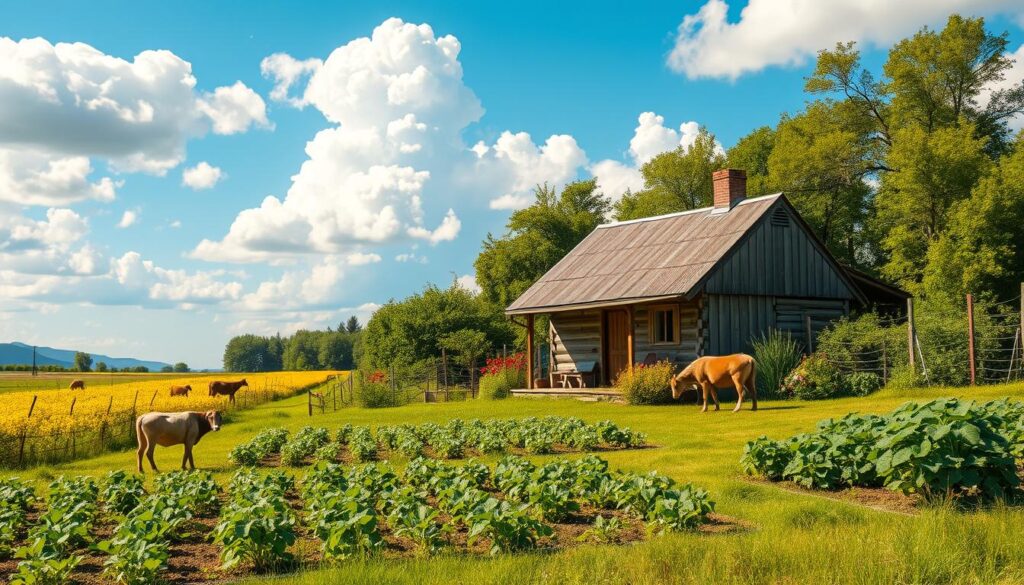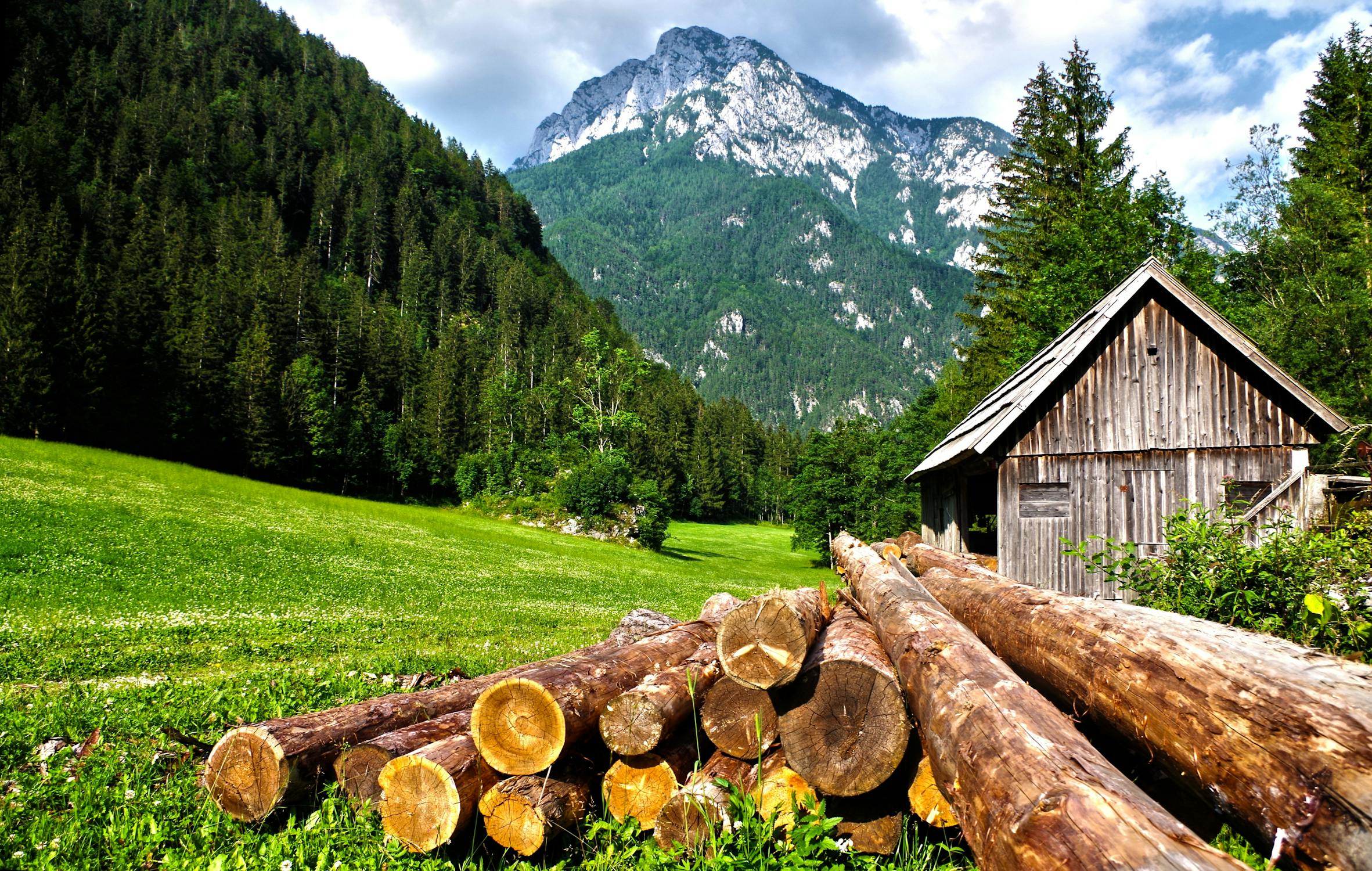Table of Contents
Natural rights have been key in Western politics, shaping our views on freedom, fairness, and dignity. This guide explores the basics of natural rights theory. It shows how these ideas have shaped our modern society and governments.
At the core of natural rights is the belief in personal freedom and control. Thinkers like Murray Rothbard said we own our bodies, minds, and work. This idea supports the rule that we should not harm others as we pursue our goals.

The idea of homesteading also plays a big role. It says we can own property by working for it. This idea, from John Locke, has helped shape our dream of a free and wealthy society.
In this guide, we’ll look at the logical and philosophical roots of natural rights. We’ll see how they connect to natural law and the role of government in protecting our freedoms. By understanding these basics, we’ll see why natural rights are so important in our search for justice and fairness.
Self-Ownership: The Cornerstone of Natural Rights
At the heart of natural rights philosophy is self-ownership. This idea says each person has control over their body, mind, and actions. Self-ownership means we have personal sovereignty and the freedom to make decisions about our bodily autonomy and freedom of thought.
Defining Ownership and Possession
Ownership means having control and possession over something. For self-ownership, it’s clear we control our bodies and minds. This liberty to control our physical and mental selves is key to natural rights.
Recognizing Our Control Over Our Bodies and Minds
- Questioning our self-ownership shows we control our actions and thoughts.
- Our power to decide, think, and act proves our personal sovereignty.
- This understanding of self-ownership is the base of the natural rights philosophy. It highlights the liberty and freedom of the individual.
“Self-ownership is the cornerstone of libertarian natural rights philosophy.”

Understanding self-ownership helps us see the value of natural rights and personal sovereignty. It’s a key step in valuing the freedoms that let us live as independent individuals.
The Foundation of Natural Rights Philosophy
At the heart of natural rights philosophy is a key idea. Murray Rothbard said each person must own themselves. No one can take away this right. This idea is at the core of libertarian thought.
It protects our freedom and stops others from using force against us.
Rothbard’s Fundamental Axiom of Self-Ownership
Rothbard’s idea of self-ownership is key. It says each person has full control over their body and mind. No one else can claim this right.
This idea is the base for other rights, like owning private property.
The Non-Aggression Principle
The non-aggression principle is linked to self-ownership. It says using force against someone or their things is wrong. It keeps our freedom safe and stops force from being used against us.
“The non-aggression principle is a key tenet of natural rights theory, which states that the initiation of physical force against a person or their property is inherently illegitimate.”
The ideas of self-ownership and the non-aggression principle are the foundation. They give us a strong way to understand and defend our freedom and property rights.

Homesteading and Acquiring Property
The natural rights tradition says people can own property by homesteading. This idea comes from John Locke. Locke believed that when someone works on something in nature, it becomes their property. This way, people can own things that were not owned before.
Locke’s Labor Theory of Property
Locke’s labor theory is key to natural rights. He said that working on something makes it yours. This idea helps us understand how people get and keep property rights.
“The great and chief end, thereof, of men’s uniting into commonwealths, and putting themselves under government, is the preservation of their property.” – John Locke
The Homestead Act of 1862 gave 270 million acres of land to private citizens. This was 10% of the U.S. area. After the 1930s, fewer people claimed land, but the Act stayed in effect until 1976. Alaska’s homesteading rules lasted until 1986.

Nearly four million homesteaders settled land in 30 states over 123 years. The Homestead Act let people get up to 160 acres of land. They had to live on it, improve it, and pay a small fee. This showed the power of homesteading and Locke’s ideas in the U.S.
Natural Rights: A Rational, Philosophical Concept
Natural rights come from reason and philosophy, not from supernatural forces. They are based on the idea of self-ownership. This is different from the belief that governments give us rights, known as legal positivism.
Philosophers like John Locke believe humans have inherent rights to life, liberty, and property. These rights are not based on what governments say. They exist before any laws or governments.
“We hold these truths to be self-evident, that all men are created equal, that they are endowed by their Creator with certain unalienable Rights, that among these are Life, Liberty and the pursuit of Happiness.”
Thomas Jefferson’s words in the Declaration of Independence show the impact of natural rights. This idea helped shape the United States and inspired freedom movements worldwide.

Natural rights are based on human reason and self-ownership. They protect our dignity and freedom. This approach is stronger than legal positivism, making natural rights key in modern politics.
Governments and Natural Rights
Governments don’t give or make natural rights. They must protect the rights people have because they own themselves. This idea challenges the idea that only the state can decide what rights we have. People who support natural rights say that this view ignores how governments have broken individual freedom in the past, like with slavery and genocide.
The Fallacy of Legal Positivism
Legal positivism is a wrong idea. It says the state decides what rights we have. But it ignores how governments have used their power to hurt the freedom of their citizens. Natural rights are a better way to protect freedom and keep the state in check.
- Governments are not the source of rights. They are supposed to protect the natural rights that people have.
- Legal positivism can’t explain how governments can make laws that go against basic human rights, like slavery.
- Natural rights are a stronger way to protect individual freedom and stop the state from getting too powerful.
“The fallacy of legal positivism is that it assumes the state is the sole source of rights, when in reality governments have often used their power to violate the natural rights of citizens.”

Understanding the importance of natural rights helps us build a stronger defense of individual freedoms. It shows that we have rights because we own ourselves, not because the state gives them to us.
Natural Law and the Political Common Good
Natural law is at the heart of defending liberty and limited government. It says there are universal moral standards in human nature. These natural laws guide us to value life, health, knowledge, friendship, and spirituality.
The political common good is what the political community aims for. It’s about creating conditions for individuals and smaller groups to thrive. Natural law says political authority should respect the freedom of these groups, following the principle of subsidiarity.
Basic Principles of Natural Law
Natural law has key principles for the political community. These include:
- Respect for human life and dignity
- Promotion of justice and the common good
- Recognition of the fundamental rights and freedoms of individuals
- Respect for the autonomy and self-determination of smaller communities
Political Community and the Political Common Good
The political community, guided by natural law, works to ensure human flourishing. It balances individual, family, and group interests for the political common good. Natural law values subsidiarity, letting smaller groups decide for themselves to better serve the community.
“The common good is the sum total of social conditions which allow people, either as groups or as individuals, to reach their fulfillment more fully and more easily.” – Pope John XXIII
By following natural law, the political community can create a just environment. This supports the pursuit of human goods, leading to a better society for all.
Limited Government, Liberty, and natural rights
In the natural law view, governments are limited. They exist to help people and small groups thrive. Liberty is key because it lets people flourish on their own.
Natural law also says some limits on liberty are okay. This is to protect others’ rights and goods. The idea of subsidiarity supports this, letting smaller groups make their own decisions. Political authority aims to keep society in harmony and uphold public morality.
The natural law perspective is strong in defending limited government and liberty. It bases rights on universal principles. This approach balances individual freedom with the common good, protecting natural rights effectively.
FAQ
What is the foundation of natural rights theory?
Natural rights theory is based on self-ownership. This means each person controls their body and mind. They can decide how to use them without others’ interference.
What is the fundamental axiom of natural rights philosophy?
Murray Rothbard said each person must be a self-owner. No one can interfere with this self-ownership.
What is the non-aggression principle?
The non-aggression principle is key in natural rights theory. It says starting physical force against someone or their property is wrong. This protects individual freedom and stops coercion.
How can individuals acquire private property according to the natural rights tradition?
In the natural rights tradition, private property comes from homesteading. John Locke’s labor theory says mixing labor with something makes it private property.
Are natural rights derived from supernatural or theological forces?
No, natural rights come from reason and philosophy, not supernatural forces. They are based on self-ownership and are logical deductions.
Do governments grant or create rights?
Natural rights advocates say governments protect rights, not create them. The idea that only the state has rights is wrong. It ignores history where laws harmed individual freedom.
What is the purpose of the political community according to natural law theory?
Natural law theory sees the political community’s purpose as the common good. This is about helping individuals and communities pursue life, health, and more.
How does natural law theory view the role of the state and political authority?
Natural law theory limits the state and political authority. Their role is to help individuals and communities flourish. Liberty is key for true happiness and freedom.





this site is very amazing and beautiful
Thank you so much! I’m glad you find the site amazing and beautiful. Your support means a lot, and I hope you continue to enjoy the content. Stay tuned for more updates and inspiring visuals!